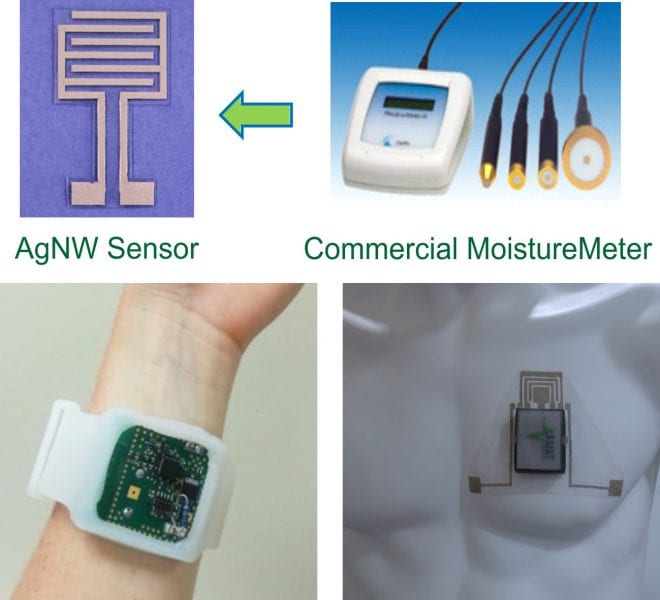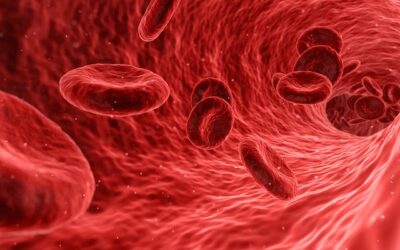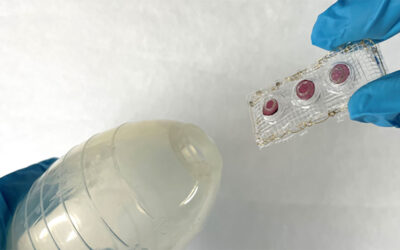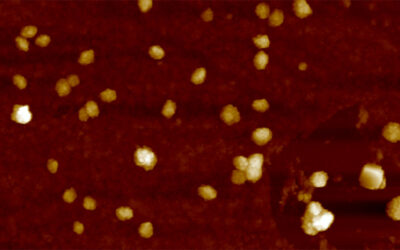A person’s water content is crucial to regulate body temperature, blood pressure, heart rate, and etc. Therefore, hydration level of the body is an important physiological parameter to measure, but is challenging to measure accurately. Many methods to assess dehydration are qualitative, for example, by accessing how the person looks (e.g., sunken eyes and cracked lips), or by examining the volume and color of urine. More quantitative assessment relies on measuring change in hydration by weighing a naked person before and after exercise, or by using bulky and expensive instruments that measure the physical properties of the skin. Almost all of these measurements are taken in clinical settings.
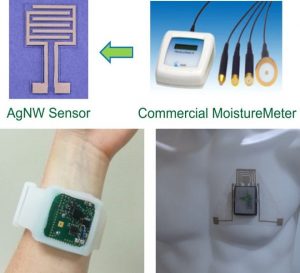
In their recent paper, in Advanced Healthcare Materials, Muth, Zhu and co-workers from North Carolina State University describe a low-cost, wearable skin hydration sensor made of conductive silver nanowires (AgNWs) inlaid in a silicone (PDMS) matrix. The flexible and stretchable nature of the AgNW/PDMS sensor allows conformal contact to the skin and provides a conformal electrical/mechanical interface to the skin. The sensor can be worn continuously to monitor the skin hydration based on the skin impedance method. To make the sensors into wearable form factors, two integrated systems are demonstrated together with circuit chips, button cell batteries and Bluetooth. The first demonstrated system is a flexible wristband for skin hydration sensing and the second one is a chest patch consisting of a strain/motion sensor, three electrocardiography electrodes and a skin hydration sensor for multimodal sensing.
The low-cost, wearable, wireless and continuous sensing of skin hydration and other health parameters has potentials to monitor dehydration and other physiological parameters among athletes, first responders, military personnel and the elderly, provide insight to athletic performances, assist the cosmetic scientists for the development of moisturizers, and benefit the diagnosis of skin and other related diseases.

